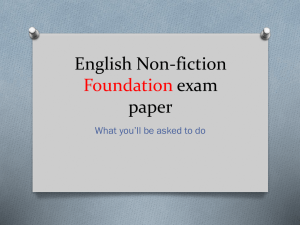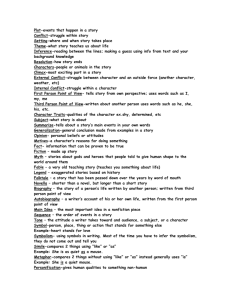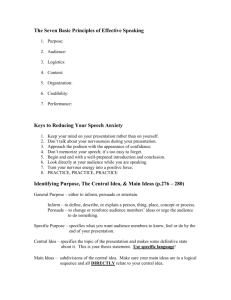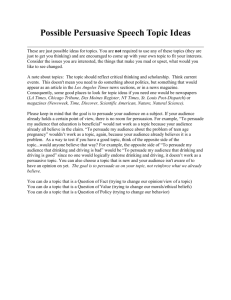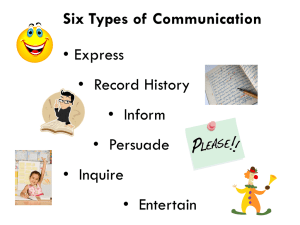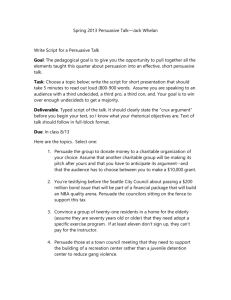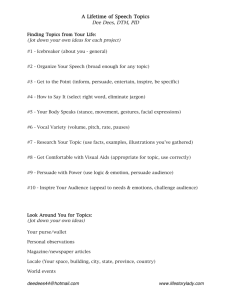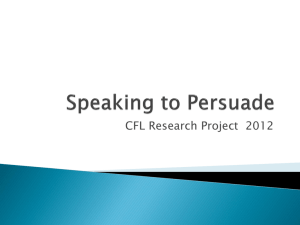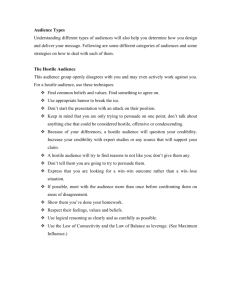Speech to Persuade
advertisement
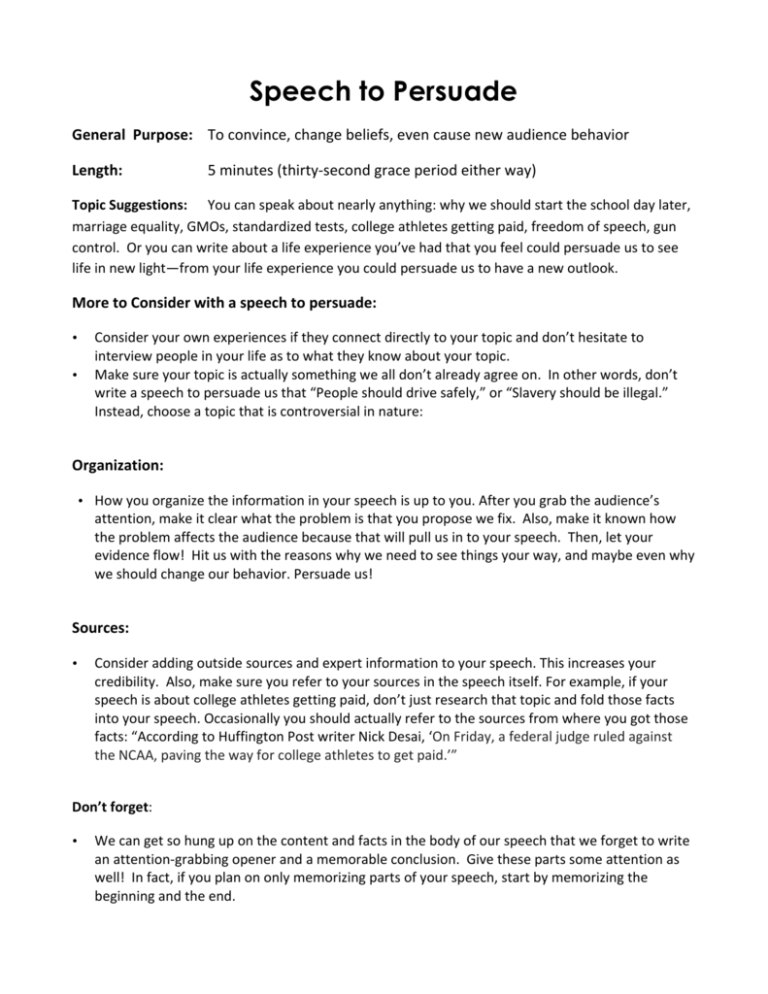
Speech to Persuade General Purpose: To convince, change beliefs, even cause new audience behavior Length: 5 minutes (thirty-­‐second grace period either way) Topic Suggestions: You can speak about nearly anything: why we should start the school day later, marriage equality, GMOs, standardized tests, college athletes getting paid, freedom of speech, gun control. Or you can write about a life experience you’ve had that you feel could persuade us to see life in new light—from your life experience you could persuade us to have a new outlook. More to Consider with a speech to persuade: • • Consider your own experiences if they connect directly to your topic and don’t hesitate to interview people in your life as to what they know about your topic. Make sure your topic is actually something we all don’t already agree on. In other words, don’t write a speech to persuade us that “People should drive safely,” or “Slavery should be illegal.” Instead, choose a topic that is controversial in nature: Organization: • How you organize the information in your speech is up to you. After you grab the audience’s attention, make it clear what the problem is that you propose we fix. Also, make it known how the problem affects the audience because that will pull us in to your speech. Then, let your evidence flow! Hit us with the reasons why we need to see things your way, and maybe even why we should change our behavior. Persuade us! Sources: • Consider adding outside sources and expert information to your speech. This increases your credibility. Also, make sure you refer to your sources in the speech itself. For example, if your speech is about college athletes getting paid, don’t just research that topic and fold those facts into your speech. Occasionally you should actually refer to the sources from where you got those facts: “According to Huffington Post writer Nick Desai, ‘On Friday, a federal judge ruled against the NCAA, paving the way for college athletes to get paid.’” Don’t forget: • We can get so hung up on the content and facts in the body of our speech that we forget to write an attention-­‐grabbing opener and a memorable conclusion. Give these parts some attention as well! In fact, if you plan on only memorizing parts of your speech, start by memorizing the beginning and the end.
